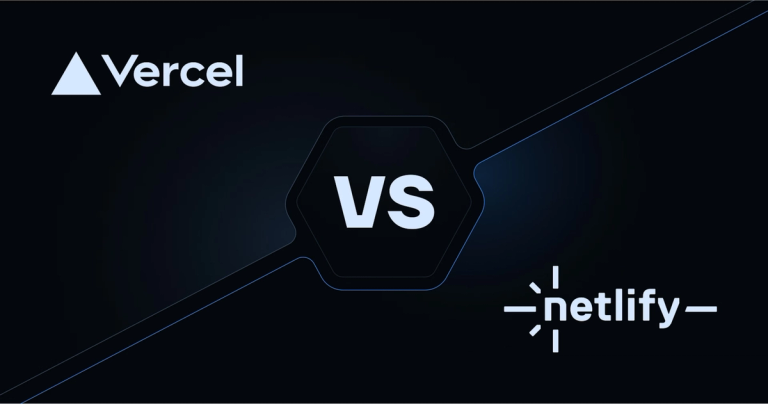
Introduction
Vercel is the go-to hosting platform for modern web applications, loved for its unmatched simplicity and seamless Next.js integration. As the creators of Next.js, Vercel supports new features from day one, giving it a clear edge over competitors.
But let’s get straight to the point — hosting costs. If you’re here, you’ve likely seen the $3,500+ price tag on the Enterprise plan and are wondering: is it really worth it, or are you overpaying for features you don’t actually need? Let’s break it down and find smarter ways to optimize your hosting expenses without sacrificing performance.
Understanding Vercel’s Pricing: PRO vs Enterprise
Vercel offers three tiers: Hobby, PRO, and Enterprise. While the Hobby plan is free and great for personal projects, it doesn’t fit the needs of real-world business applications. For that reason, we’ll focus on the PRO and Enterprise plans, comparing their limits and cost-effectiveness for hosting Next.js applications.
The PRO Plan: Generous Limits for Small Teams
The PRO plan costs $20 per user per month. For a small team (e.g., three developers and one account manager), the total cost is $80 per month. This plan provides generous resources that suit most dynamic applications, including:
- 1TB of bandwidth: Enough for more than 1,000,000 monthly users. Additional bandwidth is available for $150 per TB, making it easy to scale without upgrading.
- Edge Features: Full access to Edge Middleware, ideal for optimizing performance at scale.
- Scalability: Exceeding resource limits is rare for typical Next.js applications, but additional usage can be purchased affordably.
For under $100 a month, the PRO plan meets the needs of most developers hosting Next.js applications.
Why Consider the Enterprise Plan?
The Enterprise plan, starting at $3,500 per month, is tailored to large-scale organizations with specific compliance or performance needs, such as:
- Single Sign-On (SSO) for corporate user management.
- Parallel builds, which speed up deployment pipelines by a few minutes in large projects.
- Custom Support and Service-Level Agreements (SLA) for guaranteed reliability.
- Static IP
While these features are attractive, they cater to highly specific cases. Most teams can achieve similar performance and flexibility by optimizing their PRO plan setup or exploring self-hosted Next.js solutions.
The Bottom Line: Before committing to the Enterprise plan, evaluate whether the PRO plan’s scalability, affordability, and features meet your project’s needs. Many small teams can operate efficiently under $100 per month using the PRO plan
Avoid Exceeding PRO Plan Limits
Even with Vercel’s generous PRO plan limits, poor technical optimization can lead to unexpected hosting expenses. Common challenges include:
- Function Caching: Inefficient caching increases serverless function calls, consuming execution time and bandwidth.
- Rate Limits: Without proper request limits, applications are vulnerable to abuse, driving up hosting costs.
- Monitoring: A lack of performance monitoring can prevent teams from identifying resource bottlenecks.
To prevent these issues and reduce hosting costs, consider a professional audit of your Next.js application. Our agency specializes in optimizing Next.js setups, helping you achieve cost-effective performance. Learn more here: Next.js Audit Services.
Optimizing Costs with Self-Hosting
When the limits of Vercel’s PRO plan become restrictive, self-hosting is an excellent alternative. It offers improved flexibility, performance, and cost control for hosting Next.js applications.
Performance Challenges with Vercel Serverless Functions
Serverless functions on Vercel often fall short for dynamic applications, suffering from cold starts and higher latency. While Next.js’s data caching helps, it doesn’t fully resolve these performance issues. With self-hosted Next.js, you can deploy on a dedicated server to eliminate bottlenecks, provided your team has the necessary expertise.
Enhanced Control Over Caching
Self-hosting allows greater customization for caching strategies, particularly for dynamic content. For insights, explore our article: Self-Hosted NextJS.
Infrastructure Costs
Self-hosting increases infrastructure complexity but can significantly reduce costs:
- Basic Setup: Starting at $500 per month, this suits streamlined applications with manageable traffic.
- Advanced Setup: For complex applications with integrated databases, backend services, caching, and static asset storage, costs start around $1,000 per month on platforms like Cloudflare or Render. These solutions often provide a better experience than AWS for smaller teams.
Key Considerations
Self-hosting requires experienced developers to manage the infrastructure effectively. However, for less than the cost of Vercel’s Enterprise plan, you can achieve a custom Next.js hosting setup that surpasses the limitations of serverless environments.
If you’re ready to explore self-hosting or need guidance, our consultancy services can help you build an optimized, cost-effective Next.js infrastructure tailored to your needs.
SELF-HOSTED NEXT.JS

Conclusion
Whether you’re staying on Vercel’s PRO plan or exploring self-hosted solutions, optimizing your hosting costs is about understanding your project’s technical and business needs. By leveraging strategie like caching optimization, monitoring, and tailored infrastructure setups, you can save money and unlock superior performance.
Ready to reduce your hosting costs? Contact us to learn how we can help optimize your Next.js application!



